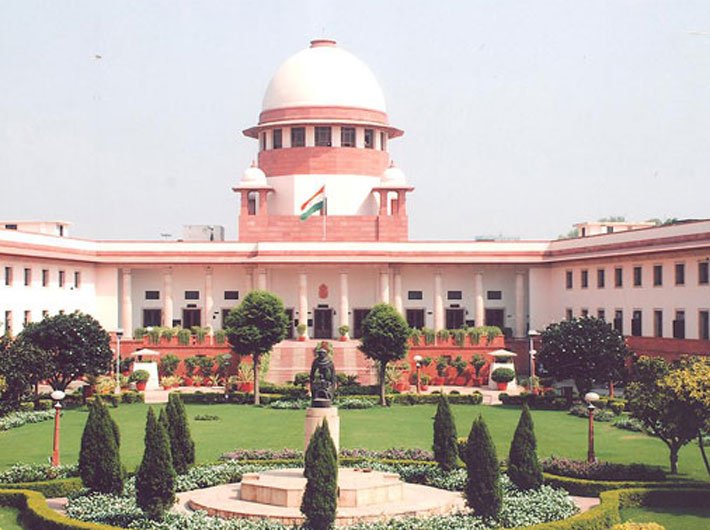People-centric changes are needed to make the country's highest court more accessible
Since English philosopher John Stuart Mill coined the phrase, “tyranny of public opinion”, it is more often used as a fig leaf for those whose last resort is politics.
That might be understandable for political practitioners in a democracy as they are guided by majoritarianism. But judges are not – they are trained to indeed contain the evils of this “tyranny”. India’s supreme court is a classic example that stood up to this evil of democracy in the past. But history is hardly a mirror for the present.
For those who have access to the portals of the world’s most powerful court, India’s supreme court, the spectacle of four senior most judges raising the banner of revolt against their chief justice did not come as a surprise. It rather comes as a conspiracy to change the course of history.
“It was brewing for some time” is the general refrain if you talk to anyone conversant with what is going inside the apex court. Letters were secretly written to judges and circulated all around, pointing out skeletons in the cupboard hidden from the public view. Insinuations were casually thrown at over the formation of benches on certain issues of critical economic and political importance.
And there were all indications that confirmed that there was something stinking in the corridors of the supreme court, to use the phrase of justice Markandey Katju while talking about the Allahabad high court. All this got exposed in a jiffy as the four senior most judges led by Justice J Chelameswar pointed finger at the CJI Dipak Misra’s ‘indiscretion’ in allocating cases to the benches and other administrative matters.
By all accounts, it seems there would be an attempt to treat this fracas as an aberration and bury the hatchet to continue business as usual. And that will be a treatment worse than the disease. In fact, it would be prudent to go much deeper into the malaise that afflicts the country’s judicial system which stands in splendid isolation, deeply hollowed and is impervious to any change within itself.
Look at the issues raised by the four judges and evaluate if any of them is concerned to people’s welfare at large. Prima facie, all of them relate to work allocation within the court. They object to the fact that critical issues that grab the headlines are being passed over from benches comprising senior judges to junior judges. In effect, they implied that their juniors were less qualified to deal with the issue. At the same time they apply the logic of the CJI being “the first among equals” to hammer home the point that the CJI was equal to the rest of them. The manner in which the case relating to Justice Loya’s death is brought out to settle scores within the SC smacks of politics.
And it was hardly a coincidence that senior advocate Dushyant Dave wrote a piece in The Indian Express on the very day the four judges chose to go public. Of course, the decision to go to “people’s court” was premeditated and not impulsive. The façade of “public opinion” was invented to cover up a conspiracy by a clique of activist-lawyers who are inured to bullying non-conformist judges and setting political agenda in garb of judicial activism.
Is this judicial activism for public good? Apparently, it is cleverly garbed in the discourse of public good to protect the personal turf of a select group of lawyers. None of the issues raised by these activist-lawyers pertain to the issues that make the country’s highest court inaccessible to common people. Take for instance, the language spoken in the higher judiciary: it is often incomprehensible to people. Fees lawyers charge are exorbitant. An ex-IAS officer, Harish Chandra Gupta, known for his impeccable integrity but implicated in the coal scam, recently pleaded the court to put him in jail instead of putting him through the charade of trials which he cannot afford.
But this is not the only issue. The judiciary has kept itself out of the ambit of the Right to Information Act and judges are not bound to declare their assets like other public servants.Similarly the principle of social justice (euphemism for reservation in government jobs) enunciated by the SC aptly in the Mandal commission report does not apply to the judiciary itself. The selection of judges for the higher judiciary is not only opaque but obnoxiously clannish to say the least. The manner in which the SC struck down the NJAC passed unanimously by parliament was indicative of the higher judiciary’s aversion to reform.
Ironically, justice Chelameswar who led Friday’s revolt was the lone dissenter in the NJAC judgment. In his judgment, he quoted an ardent appeal for reform by Lord Macaulay to British parliament in 1831 to enfranchise the working class. Lord Macaulay had underlined the importance of reform in order to protect the royalty and ruling clique and said, “Reform that you preserve”. Perhaps, as the SC meets again on Monday, Lord Macaulay’s wording can be rephrased and dinned into the ears of the judges: “Reform, my lords, so that you may preserve.”
[This comment first appeared on FirstPost.com]

